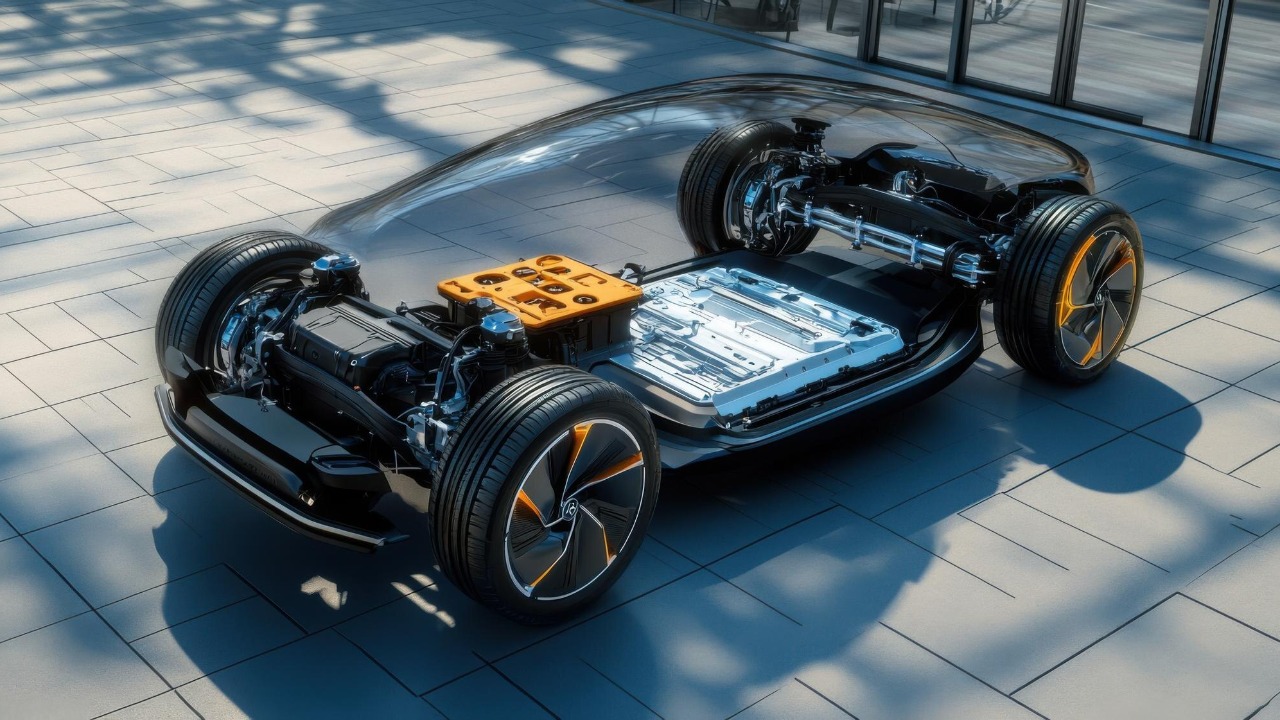
In a significant stride towards sustainable mobility, a German research team has unveiled a solid-state electric vehicle (EV) battery with an impressive energy density of 600 Wh/kg on October 30, 2025. This groundbreaking innovation, which repurposes wood waste into a power source, could potentially revolutionize the small EV sector by enhancing efficiency and reducing reliance on traditional materials in battery production.
The Innovation Behind the Battery
The German team’s solid-state EV battery represents a significant shift in battery technology. Unlike conventional batteries that use liquid electrolytes, this battery employs solid components, enhancing both safety and performance. The energy density of this battery, a whopping 600 Wh/kg, is a testament to advancements in material science and surpasses many conventional lithium-ion batteries.
What sets this battery apart is its unique integration of wood waste as a raw material source. The team has developed a process to convert lignocellulosic byproducts into conductive elements without altering their chemical compositions. This innovative approach not only repurposes waste but also contributes to the sustainability of EV production.
Sourcing Materials from Wood Waste
The team has chosen wood waste, such as sawdust and forestry residues, as the primary input for the battery’s anode and electrolyte components. This decision is based on the abundance of these materials in Germany. The wood waste undergoes a series of pretreatment steps, including pyrolysis and carbonization at specific temperatures around 800–1000°C, to yield high-purity graphene-like structures.
Using wood waste for battery production has significant environmental benefits. It diverts approximately 10 million tons of annual German forestry byproducts from landfills, directly contributing to sustainability goals and reducing the environmental impact of EV production.
Performance Metrics and Testing
The battery’s energy density of 600 Wh/kg has been tested under standard EV cycling conditions. It delivers over 500 full charge-discharge cycles with less than 5% capacity fade, demonstrating its durability and efficiency. Furthermore, the solid-state design enables rapid charging, reaching 80% capacity in under 15 minutes, compared to 30–45 minutes for traditional batteries.
The German team’s facilities in Munich have conducted extensive lab validations, confirming the battery’s operational temperatures from -20°C to 80°C without thermal runaway risks. This wide temperature range enhances the battery’s safety and reliability, making it a promising power source for EVs.
Applications for Small Electric Vehicles
The high energy density of this battery makes it particularly suitable for small EVs like urban scooters and micro-cars. A compact 10 kWh pack can provide ranges exceeding 200 km, significantly extending the mobility of these vehicles. However, integrating the wood-derived battery into small EVs presents certain challenges, such as adapting the battery’s form factor to fit lightweight chassis under 500 kg vehicle weight.
Despite these challenges, potential prototypes powered by this technology are already being developed. For instance, a two-seater electric quadricycle achieving 0–50 km/h acceleration in 4 seconds is one of the promising applications of this battery technology.
Challenges in Scaling Production
Scaling the production of this solid-state battery involves addressing several hurdles. One of the main challenges is maintaining the consistency of raw materials. The variability of wood waste requires standardized sourcing from certified German suppliers to maintain the 600 Wh/kg performance.
Manufacturing hurdles also exist, including scaling solid-state assembly lines to produce 100,000 units annually by 2027. The initial costs are estimated at €150 per kWh. Additionally, regulatory approvals are needed for EV certification, with EU standards for battery recyclability aligning with the wood waste’s biodegradable components.
Future Implications and Broader Impact
The German team’s battery could potentially reduce EV production costs by 20–30% through localized wood waste utilization, accelerating market adoption. The technology also has global scalability potential, extending to other biomass sources while preserving the core 600 Wh/kg density for international small EV markets.
In the long term, this innovation could significantly contribute to sustainability. By minimizing mining dependencies for battery materials, it supports Germany’s 2030 goal of having 15 million EVs on the roads. As such, the German team’s solid-state EV battery represents a promising step towards a more sustainable and efficient future for electric mobility.
More from MorningOverview